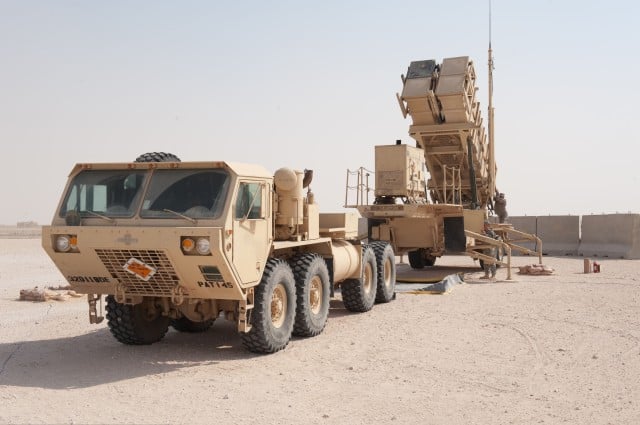Stationing a U.S. missile system in Palau would be for security not aggression as the Pacific island country’s close relationship with the United States means it is already a target of possible attack, President Surangel Whipps has said amidst local criticism of the proposal.
Whipps, at a press conference said Palau needs the same protection as Guam, a U.S. territory in the north Pacific that has a Patriot missile system to protect it from attacks. Whipps floated the idea of an air-defense system for Palau in an interview with Japan’s Nikkei Asia that coincided with the U.S.-Pacific islands leaders summit in Washington last month.
“We are already a target. The targets are the radar sites, the port, the airport and the facilities that the United States can use in times of conflict,” said Whipps. “So we are just saying, if we are already a target, make sure our country is defended and defended with the best defenses possible.”
Patriot is the U.S. army’s main air and missile defense system and is capable of bringing down ballistic and cruise missiles as well as aircraft. It is used in 18 countries, according to the Center for Strategic and International Studies.
Palau and its neighbours the Federated States of Micronesia and the Marshall Islands comprise hundreds of islands spread over a vast expanse of ocean in the northwest Pacific. They have among the world’s largest exclusive economic zones and militarily strategic seas near East Asia, a region of potential flashpoints in the intensifying China-U.S. competition.
All three delegate their defence to the U.S. and over the next two decades could receive more than US$7 billion of financial and economic assistance from Washington under so-called Compacts of Free Association, subject to Congressional approval.
The U.S Army has previously carried out live fire tests of a Patriot missile system in Palau, the most recent in July at the country’s international airport and in 2022 during Valiant Shield exercises, according to DVIDS, a U.S. military news service.
The U.S. is building an over-the-horizon radar in Palau that it hopes to complete in 2026 and recently strengthened maritime security ties with a new agreement that allows the U.S. Coast Guard to enforce regulations in Palau’s exclusive economic zone without a Palauan officer present.
The possibility of a permanent air defense missile system in Palau has raised concerns among some figures in the country.
Former President Johnson Toribiong said the Palau traditional leaders and elected leaders should be consulted.
“It is necessary because, in that process, the people of Palau will be well informed about the nature of the Patriot Defence System, its impacts on our natural and social environments, and whether Palau may become a potential target of the preemptive strike or return fire in time of military conflict,” said Toribiong.
Hokkons Baules, president of Palau’s Senate, said U.S. interests rather than Palau’s are served by a military buildup in the country.
“This is a U.S. interest matter, the Indo-Pacific,” he said. “We senators believe Palau has no enemies. And we believe the U.S. should only step in when there is conflict. This build-up is U.S. interest, not ours.”
Whipps said the July test of the missile system was to assess the process of it being deployed from Guam in a time of threat.
He said a national leadership meeting believed that the three-hour deployment time was too long and senators at the meeting had recommended a permanent installation. Baules said the Senate as a whole has not made that recommendation. “Some people say it makes us a target, but I say presence is deterrence,” Whipps said.
